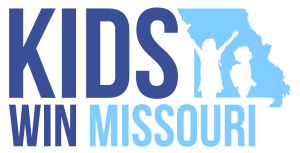As of July 1, Missouri had access to more than $100 million in its annual allocation of federal Child Care Development Block Grant (CCDBG) funding. Additionally, through June, the state has spent $13.7-17.9 million of the $66.5 million dollars it received in CARES Act CCDBG funding, leaving $48.6-52.8 million in pandemic relief available to support children and families in accessing safe, reliable and quality child care during the pandemic.
Annual CCDBG FUNDING Allocation
Each year, the federal government provides funding to states to help support child care for working families. The federal Administration for Children and Families grants these funds through the Child Care Development Block Grant program. The program has three annual federal streams of funding (Mandatory, Matching and Discretionary, each with unique stipulations on use of the funding) and requires states to fund part of the program as well as to match to some of the federal dollars.
According to a quarterly report the state files with the federal Office of Child Care, Form 696, as of July 1, after comparing expenditures to the amount of federal funding awarded to the state, Missouri had access to approximately $100 million in federal funding. States can request awarded funding from the federal government as it needs it to meet program expenses. Missouri spent approximately $32 million of federal funding between April 1 and June 30. If it spends a similar amount between July 1 and September 30 and reserves $40-50 million of that amount for contingencies or unexpected program expenses, it leaves $15-30 million in federal funding available.
New and additional federal funding is typically made available shortly after the new federal fiscal year begins on October 1.
CARES Act CHILD CARE FUNDS
In March, Congress approved the CARES Act, a $2 trillion+ relief package designed to support Americans weather the storm of the Coronavirus pandemic. The CARES Act provided $3.5 billion to states through the Child Care Development Block Grant program. Missouri’s allocation of this funding was $66.5 million. In May, the Department of Social Services (DSS) released a plan for these funds. The plan has six components described below.
1) Providing temporary child care assistance for low income unemployed Missourians
This component offers 90 days of child care assistance to Missourians searching for work and is available through September 30. The plan anticipated serving 7,500 households and 11,250 children. DSS estimated it would cost $14.4 million.
2) Expended eligibility for transitional child care benefits
The state’s CCDBG program normally offers transitional child care, a program offering reduced benefits for families with incomes that exceed the income limits for receiving full benefits, to families only if they were previously receiving full benefits. The plan proposed to simplify the transitional benefit program and temporarily offer it to families that never received full subsidy benefits. DSS estimated this provision would cost $12.8 million.
3) One-time payments to providers remaining open, providing services to essential personnel
For providers that remained open during the onset of the pandemic, the state provided a one-time payment for those providing services to essential personnel. In the CARES Act spend plan, DSS estimated this program would cost $3.5 million, however, updates provided by DSS at a recent Coordinating Board for Early Childhood meeting indicate that the program will cost $4.2 million.
4) Paying a stipend for licensed or licensed exempt providers who provide care during non-traditional hours, regardless of whether they provide subsidy care
The Department dedicated $4.2 million for this component of the plan, which added $100 per child care slot for providers offering services outside of traditional hours, 6am to 7pm. This program ran from April through June. It is unclear how much has been expended under this program.
5) Paying child care providers for full authorization
Traditionally, child care facilities receive payments based on children’s attendance. The plan provides for paying facilities based on the number of authorized slots the facility has for families receiving benefits under the program. This benefit was made available for services provided from April through June and was extended to include services provided in the month of July.
6) Providing one-time grants to higher education institutions for on-campus child care programs
DSS set aside $10 million for a new program to provide grants to higher education institutions, but has not yet awarded grants under this program.
Expenditures for components as described in 1, 2 and 5 are reflected in the child care monthly management report. The state usually expends $12.3 million per month in direct payments for child care services. DSS expended $16.2 million for services provided in April, $15.4 million for services provided in May and $14.7 million for services provided in June. These expenditures exceed monthly average expenditures by a total of $9.5 million over the 3-month period.
A summary of the estimated cost of the plan’s components relative to the actual costs for services provided through June are below.
Components 1, 2 & 5- The plan estimates these three components cost $47 million. Actual costs according to the child care monthly management reports are $9.5 million.
Component 3- The plan estimates this component to cost $3.5 million. The actual cost was $4.2 million.
Component 4- The plan estimates this component to cost $4.2 million. The actual cost is unknown and ranges from $0-4.2 million.
Component 6- The plan set aside $10 million. The Department has not made any awards for this yet.
In total, the plan estimates $64.7 million in expenditures. Based on available data, the Department has spent $13.7-17.9 million in CARES Act child care funds, leaving $48.6-52.8 million available.

